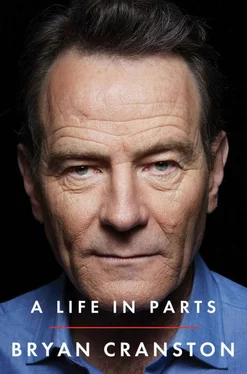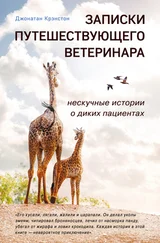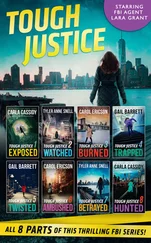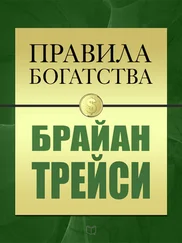Throughout high school I got sneakier and sneakier. I somehow connived to obtain two student-ID cards; both pictured me, but my alter ego was named Bill Johnson (I picked a name I could easily remember). My idea was that if I got into trouble, I could throw the authorities off Bryan Cranston’s scent by handing them Bill Johnson’s ID card. Bryan was in twelfth grade, Canoga Park High class of ’74. But Bill was class of ’75, a junior. I didn’t want any confusion. I considered every detail.
I belonged to no school clubs or organizations, but on photo day my best friend, Sergio Garcia, and I inserted ourselves into a good many group shots. There we were among the Knights and Ladies. And standing tall with the proud members of the Chemistry Club. We were also handsome cub reporters on the Hunter’s Call , the school paper. The other kids actually took part in something; they learned about science or journalism or… I don’t know what the Knights and Ladies learned about. But I was just there to pose for a picture. It was a goof, a joke, and all the other kids thought it was funny, but behind the joke was the truth: I was a guy searching. Showing up for the wrong things. Not showing up for the right things.
And in fact in my senior yearbook I am missing from the row of students with last names beginning with C . At some point, I drew an arrow to the place I should have been pictured and wrote in all caps: WHERE AM I? RIP-OFF!
WHERE AM I?
I picked up a job a few blocks from my home, preparing the Sunday Los Angeles Times for delivery. Boring. But on the plus side, I got to work with Reuben Valdez. Reuben was an excellent athlete, with a great personality and a smile that made him popular with girls. I, on the other hand, didn’t make the baseball team, and I had a crooked smile. I was unremarkable and shy. I liked working alongside a beam of light like Reuben. Maybe some of his light would rub off on me.
We arrived at our jobsite, an industrial garage unit, at 3:00 a.m., and the unmistakable scent of newsprint hit us before we even rolled up the metal door. We went to work assembling all the sections of the paper that had been dropped off at the door. Then one of us fed the beast, an ancient paper-folding machine with an assembly line of rollers and a wrapper; the beast made a horrible crunching sound as it bent the thick paper and tied it with string. The guy who wasn’t feeding collected the finished products and stacked them for our boss, Leroy Waco, whose name was pronounced with a long A like the city in Texas, but of course we called him “Wacko.”
At dawn, when we were finished feeding and stacking, we’d stuff Leroy’s car. He’d go off to deliver, and I’d walk home in an exhausted stupor.
Leroy was busier than a one-armed man flinging newspapers from a stick-shift VW Bug. Actually, that’s exactly what he was. The guys at the paper called him the one-armed bandit. He had lost his right arm. (I never asked how.) He’d slip his left arm through the steering wheel and rest it on the shifter. When he approached a customer’s home, he’d slow down, put the car in neutral, and pull his arm free, steering with his knees. He’d grab a paper and then hurl it toward a porch or driveway. He never, ever missed his target. He had the elegance, precision, and timing of a Gold Glove shortstop turning a double play.
Occasionally when we were ahead of schedule and the papers were wrapped and ready to go, I would ride shotgun. “Coming up!” Leroy would say. That was my cue. Wedged into the passenger seat, I’d prepare to toss a paper out my window. We’d slow to a crawl. “NOW!” Out it went. I did not have a fraction of Leroy’s skills. I hit a lot of trees. A lot of gutters. “Goddamn it, kid,” Leroy grumbled. He called both Reuben and me “kid.” I don’t think he ever knew our names. We’d come to a stop, and I’d run out and put the paper where it belonged.
It didn’t take long for Leroy to reconsider my role. “Just keep a steady supply of papers for me to grab when I’m ready,” he’d say with a sigh. Just feed the beast.
When the beast-feeding finally got to me, my friend Jeff suggested I work for his dad, a housepainter who needed help on the weekends. I’d met Jeff in the West Valley Division of the Los Angeles Police Department Explorers, a branch of the Boy Scouts. He was Native American, and his last name was Redman, and he was able to joke about it. He was cool and streetwise, with a strong mischievous streak. His dad, Jim, was a man of few words.
On our first day together, a Saturday, Jim picked me up at 6:00 a.m., and we rode in silence to an industrial building, a job he’d already started. When we began, he tossed a rag to me and said, “Soak that in turpentine and keep it in yer back pocket. Any time you make a mess, clean it up right away. It’ll be your best friend.”
“Okay,” I said. Made sense.
We finished day one at dusk. I was beat. And uncomfortable. By the time Jim picked me up the next morning, I had developed a mysterious rash on my backside, raw and itchy and irritating as all hell. On the drive to work, he noticed me scratching my sore left ass cheek.
“What’s the problem?”
I told him that I didn’t know, but something probably bit me or else I was having some kind of allergic reaction. I glanced his way and caught a slight smile crossing his lips. We sat in silence for a while—easy for men to do. But why would he be smiling? Then it dawned on me. He told me to keep the turpentine-soaked rag in my back pocket. It was the turpentine! That bastard did it on purpose!
I didn’t say anything. I took it as some type of initiation. But I did find another location to stash my turpentine rag.
One day after quitting time, we didn’t go straight home. Instead, Jim drove to a far-flung neighborhood. In the alley behind a row of tract houses he slowed to a stop and got out of the truck. I wondered where he was going but didn’t say anything. I had become accustomed to his taciturn ways. He peered over a fence and then came back into the truck cab. He handed me a lunch-sized brown paper bag and told me not to open it. “Just take it up onto the bed of the truck. When you’re up there, look over the fence and you’ll see a swimming pool. Toss the bag into the pool, then come on down and get back in the truck.”
The task seemed simple enough, and I knew why he asked me to do it instead of doing it himself. The years of physical labor had beaten him up pretty badly. He had limited mobility in his arms.
I began to ask what was in the bag. “Just go on,” he said, and I did as my boss instructed, hopping into the back of the truck and peering over the tall fence that separated the homeowner’s property from the alley. I saw that it was an easy fifteen feet to the pool’s edge, so the throw had to be at least that. Better to be long than have it land on the deck or a chair. I flashed back to how disappointed one-armed Leroy had been after I’d botched it with the newspapers. I couldn’t mess this up. I weighed the bag with my hand and determined that it was heavy enough to toss underhand, like a horseshoe. I gauged the distance several times, thinking it all through, and finally Jim got impatient. “What the hell are you doing up there? Throw the goddamn bag.”
I took a deep breath and I tossed it high into the air. It felt good. It looked good. It WAS good! Right in the middle of the pool. Swoosh. YES! I quietly pumped my fist and scampered down and into the truck’s cab. As Jim drove off I waited for an explanation. When that wasn’t forthcoming, I asked. He nodded and smiled. “Inside the bag was dried India ink,” he said. When the paper got saturated and fell apart, the powder would expand and bloom and spread throughout the pool, finally settling on the plaster siding and bottom and permanently staining it. The owners would have to drain the pool and sandblast the entire surface to remove it. That’s why he told me not to open the bag. It would have stained my hands. He explained that he’d painted that house nearly a year ago. He’d tried again and again to get them to pay, but no dice. This was his way of closing the account.
Читать дальше












